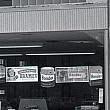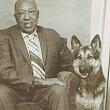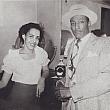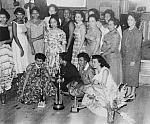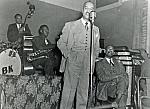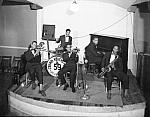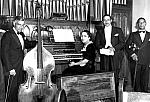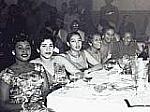
Roma Hall and Prohibition
by Kim Rush, John Russo, and Martin Starr
G.B. made his own wine during the prohibition years. He didn’t sell it, but he would share it with his friends, the priest, and other acquaintances, just to please them. When he made it in the basement one “could smell it all over the place,” according to his daughter Jennie. When someone wanted a drink, G.B. would open the basement door where the wine stood on the shelf behind the door, and they’d enjoy it privately, behind the closed door.
Russo created Roma Hall during the Depression and Prohibition era. Though this was a challenging time to start any business, by early 1933 it became clear that prohibition was coming to an end. On April 7, 1933 the Cullen–Harrison Act legalized the sale of beer and wine with an alcohol content of less than 3.2%. Also, resistance to prohibition was gaining increasing acceptance with lawmakers and the business community. During the depression, with so many people unemployed and less businesses functioning, the government suffered substantial loss of their taxation/revenue base. Daniel Okrent: “For the government to function, it needed another source of revenue, and there was recognition across the political spectrum that there was a source of revenue that could be brought back; that is to say, the source of revenue that was in the bottle of beer or whiskey.”
“Also, the brewing and distilling industry had been the fifth largest industry in America before Prohibition in terms of employment. This includes the truck drivers and the ice-haulers and the many other subsidiary occupations. So there was a really strong impulse to bring that industry back in order to provide jobs.” [1]
Though prohibition was coming to a halt, when Russo opened Genoa Café at Roma Hall in December of 1933, it was still during the worst period of the Depression, and the country was suffering national unemployment rates of 25 percent.
[1] Source is from Daniel Okrent’s interview with James Mustich, on April 7, 2010. Located online at: http://bnreview.barnesandnoble.com/t5/Interview/Daniel-Okrent/ba-p/2564

 facebook
facebook